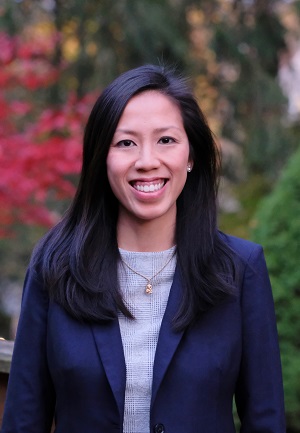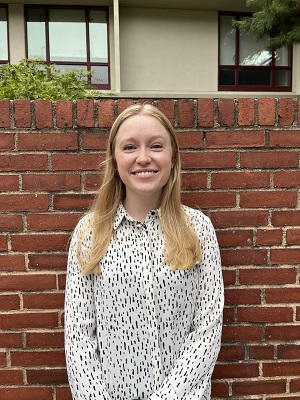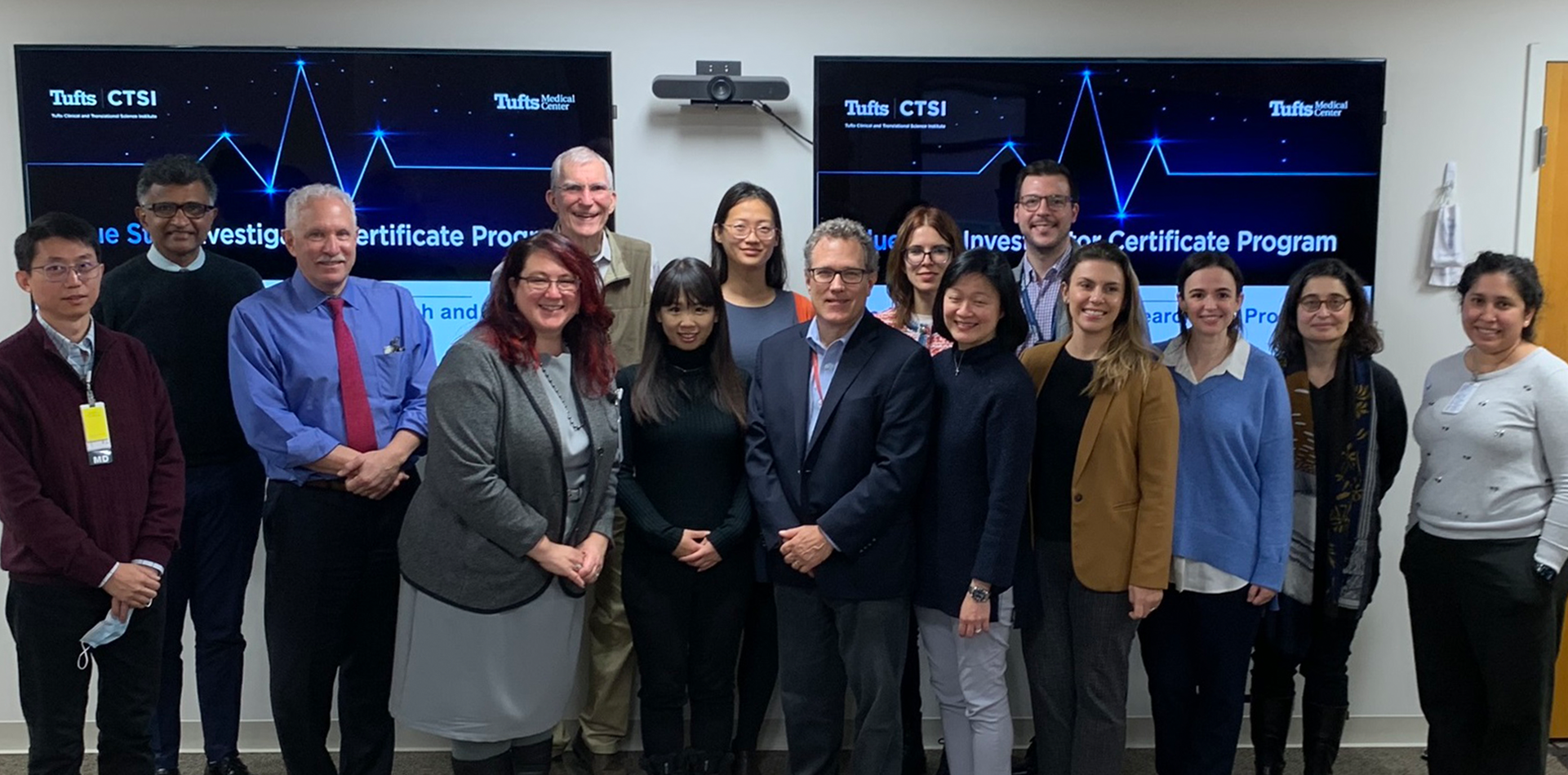
“The COVID-19 pandemic has illuminated the power and resilience of Asian communities in the face of anti-Asian violence and systemic inequities. Since 2011, ADAPT has built trust and fostered meaningful community-academic partnerships to advance the health and well-being of underserved Asian communities in the Greater Boston area.”
MyDzung Chu, PhD, MSPH Director, ADAPT

“ADAPT members are invested, and not just in building community-research partnerships, but in bringing people together and collective action. We bring issues to the table that we hear about and are affected by, with an aim to make a difference in ways that are meaningful to the community.”
Dawn Sauma, MSW, LICSW Co-Executive Director of the Asian Task Force Against Domestic Violence (ATASK) and Community Co-chair of ADAPT
Overview
Addressing Disparities in Asian Populations through Translational Research (ADAPT) was established in November 2011 as part of Tufts Clinical and Translational Science Institute’s (CTSI) Community and Stakeholder Engagement (CSE) Program. The coalition was founded on principles of Community-Based Participatory Research (CBPR), including community-identified goals and priorities, shared decision-making, and co-learning. ADAPT prioritizes trust building and authentic partnerships to address community-prioritized issues. Since its inception, ADAPT has been a strong and dedicated research and education partner for the Boston Chinatown community and for researchers and students at Tufts University, Tufts Medical Center, and throughout Greater Boston.
Motivation
Tufts CTSI places particular emphasis on Asian health disparities because the Tufts campus is located in Boston’s Chinatown and affiliate practice centers and hospitals in surrounding cities (Quincy, Malden, Lowell) have high proportions of Asian residents. In addition, Asian populations in the US are projected to triple in growth to 41 million (9%) of the US population by 2050, making it critical that we focus on improving the health equity of Asian populations. An increasing body of research and observations from our community and clinical partners illustrate that Asians are not “the model minority without health problems,” particularly for recent immigrants, low-income, and limited English-speaking Asian populations. These populations experience substantive health inequities due to structural gaps in culturally-competent and linguistically accessible care and access to social drivers of health like quality and secure housing, food, education, economic opportunities, and safe and thriving neighborhoods. Moreover, the lack of disaggregated data on Asian populations by ethnicity, language, and socioeconomic status masks significant disparities across Asian populations and further perpetuates the model minority myth. Asian American and Pacific Islander populations in the US represent approximately 50 different ethnic groups, speaking over 100 languages, and comprise the largest foreign-born populations in the U.S., with only 57% of foreign-born Asians being English-proficient.
Mission, Vision, and Values
Through a strategic planning process in 2023, ADAPT has adopted a new mission and vision statement. In addition, ADAPT has identified three strategic priority goals that will inform and guide ADAPT’s work for the next several years. See ADAPT’s Strategic Plan 2023-2027.
Mission
ADAPT is a coalition of community and academic partners committed to advancing the health, well-being, and visibility of underserved Asian communities through community-engaged research, education, and advocacy that translate into improved service delivery, policies, and health equity.
Vision
We envision a healthy and thriving society where all Asians are equitably represented and meaningfully engaged in research, education, service delivery, and policies.
Values
We embrace the following core values in our engagement, partnerships, and work:
- Bi-directional learning and collaboration
- Health Equity
- Racial Justice
- Language Justice
- Data Equity
- Culture, Diversity, and Inclusion
- Asset- and strength-based approaches
- Principles of integrity, transparency, accountability, and mutual respect
- Community-prioritized research, action, and advocacy
ADAPT Steering Committee
ADAPT is guided by an active community-researcher Steering Committee whose core members include an Executive Director, a Community Co-Chair, a Project Manager, and community and academic representatives:
- MyDzung Chu, PhD, MSPH, ADAPT Executive Director and Assistant Professor, Institute for Clinical Research and Health Policy Studies (ICRHPS), Tufts Medical Center
- Dawn Sauma, MSW, LICSW, ADAPT Community Co-chair; Co-Executive Director, Asian Task Force Against Domestic Violence (ATASK)
- Chloe Yang, MPH, ADAPT Project Manager
- Angela Soo Hoo, Community Building Associate, Asian Community Development Corporation (ACDC)
- Naheed Esar, MA, Executive Director, Asian Women for Health (AWFH)
- Ben Hires, MS, MTS, Chief Executive Officer, Boston Chinatown Neighborhood Center (BCNC)
- Megan Cheung, MSW, Associate and Clinical Director, Greater Boston Chinese Golden Age Center (GBCGAC)
- Virginia Chomitz, PhD, MS, Associate Professor, Tufts University School of Medicine Department of Public Health and Community Medicine (DPHCM)
- Kimberly Dong, DrPH, MS, RDN, Associate Professor, Tufts University School of Medicine Department of Public Health and Community Medicine (DPHCM)
- Alice Tang, PhD, MS, Professor, Tufts University School of Medicine Department of Public Health and Community Medicine (DPHCM)
Projects & Activities
ADAPT fosters bi-directional conversations about collaborative activities to link academic research expertise with community-identified priorities in the context of academic objectives of the university and the missions of community-building and service provision of ADAPT’s community partners.
Serving as an incubator, convener, and a co-learning space, ADAPT:
- Aims to raise awareness of Asian health disparities and facilitate community-engaged research that targets the health of Asians in America.
- Functions as a space for co-learning, mutual collaboration and the incubation of ideas and collaborations.
- Provides seminars and hosts the Annual Asian Health Symposium to engage research and clinical communities, public health practitioners, policy makers, and community leaders.
- Supports investigators interested in Asian health disparities.
- Encourages researcher-community collaborative efforts to seek funding for research and services in our surrounding communities.
Research
ADAPT provides consultation and support for research grants focused on Asian health. It helps incubate academic-community research partnerships and secure seed funding for their work. Most recent research projects address community-identified health needs such as housing insecurity, gentrification, problem gambling, mental health, access to care, neighborhood preservation, and environmental conditions. See examples of research projects and partnerships here (PDF).
Read the ADAPT Report on Problem Gambling here.
ADAPT Newsletter
Additional Resources
The video (“Equitable Access to Mental Health Care: Testimonials from the AAPI Community”) was created for “Building Resilience: Promoting AAPI Access to Mental Health Care,” held on October 24, 2023, at the Museum of Science, Boston.
Creating equitable access to mental health care is about more than making services and resources available. In many cultures and communities, mental health care is often stigmatized and shunned, leaving people to suffer in silence or face shame from family and friends.
The Asian American and Pacific Islander (AAPI) population is the fastest growing racial group in Greater Boston, with one of every ten people in Boston identifying as AAPI. Yet, there are huge divides in the care accessible to this community. In this testimonial video, members of the AAPI community from the Museum of Science and the Greater Boston area share their personal experiences with mental health, and in accessing care for treatment.
Education
Student learning opportunities: ADAPT provides learning opportunities for graduate and undergraduate students interested in Asian health and connects them with potential research, internship, or volunteer opportunities in Chinatown.
Annual Asian Health Symposium: As part of its commitment to bi-directional research relationships, ADAPT conducts a yearly community forum/symposium for community building, research dissemination, and stakeholder input. The Asian Health Symposium serves as a mechanism for the broader community to engage with Tufts on issues affecting Chinatown and the broader Asian community.
Stakeholder Meetings: ADAPT holds regular stakeholder meetings to provide a space for academic and community members interested in advancing Asian health equity to share, connect, and collaborate.
Engage with ADAPT
Committed to advancing Asian health equity and interested in learning more about and/or getting involved with ADAPT? Join our list serv!
Please contact: Chloe Yang, MPH, ADAPT Project Manager, at chloe.yang@tuftsmedicine.org.
Research support: For Tufts clinicians and junior/senior researchers, as well as CTSI-affiliated community partners interested in community-engaged research support, please submit a service request.



